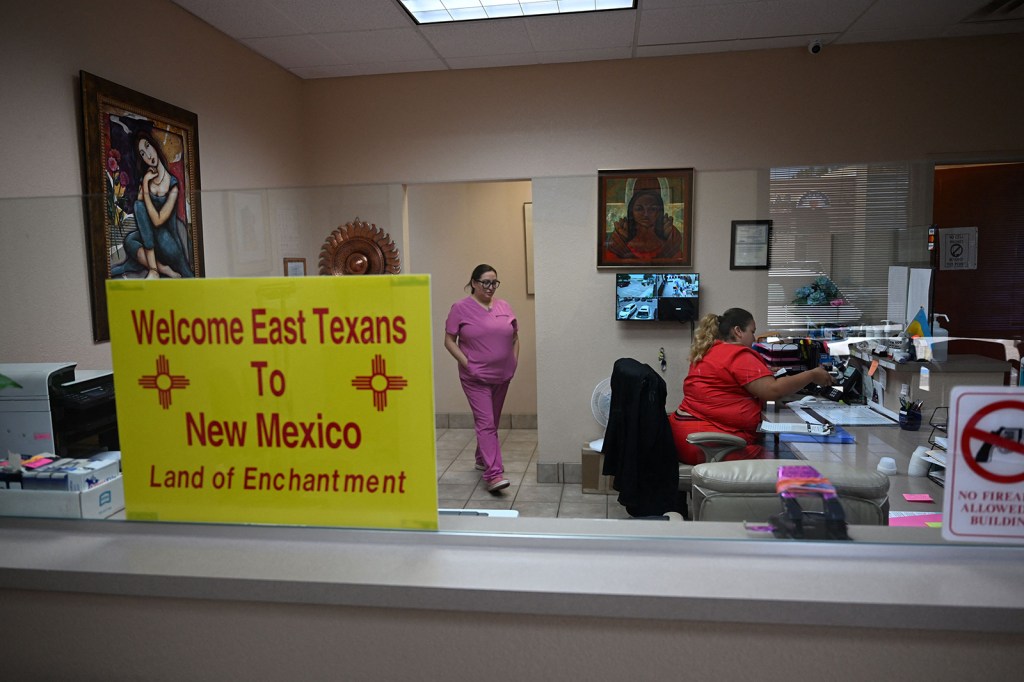Chloe Bell is a case manager at the National Abortion Federation. She spends her days helping people cover the cost of an abortion and, increasingly, the interstate travel many of them need to get the procedure.
“What price did they quote you?” Bell asked a woman from New Jersey who had called the organization’s hotline seeking money to pay for an abortion. Her appointment was the next day.
“They quoted me $500,” said the woman, who was five weeks pregnant when she spoke to Bell in November. She gave permission for a journalist to listen to the call on the condition that she not be named.
“We can definitely help,” Bell told her. “We can cover the cost of the procedure. You just tell them you have a pledge from the NAF.”
Bell is one of a growing network of workers who help people seeking abortions understand what’s legal, where they can travel for care, and how to get there.
These “navigators” can often recite from memory the names and locations of clinics throughout their region that offer abortion services at a given point in a pregnancy. Often, they can then name the hotel closest to the clinic. And some are so familiar with the most common airports for connecting flights that they can help patients find their next departure gate in real time.
State abortion laws have always varied, so helping people access legal abortion services isn’t new, but the amount of travel needed to get care has risen sharply.
In the first six months of 2023, nearly 1 in 5 abortion patients traveled out of state to get care, compared with 1 in 10 in 2020, according to an analysis by the Guttmacher Institute, a national nonprofit that supports abortion rights. That increase in travel, even for early-pregnancy abortions, has sparked a corresponding rise in the need for case managers like Bell.
Most callers are like the woman from New Jersey — people in the early stages of a pregnancy who can’t afford…
Read the full article here







